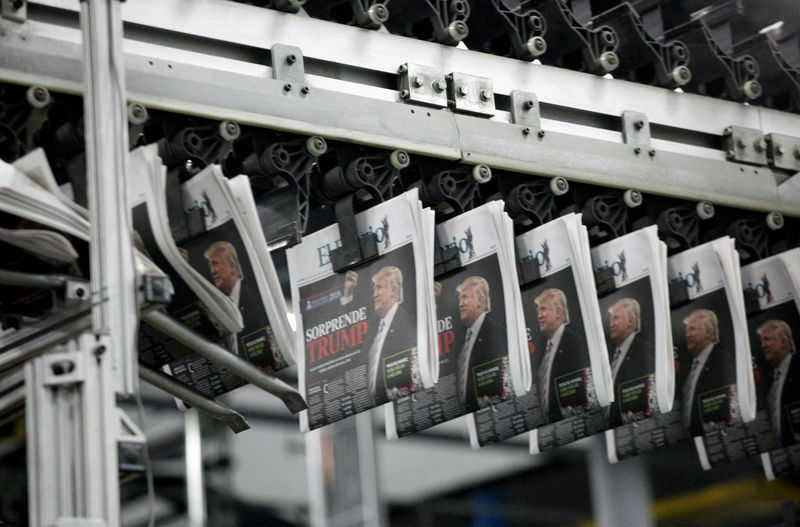By Andrius Sytas and Gederts Gelzis
VILNIUS/RIGA (Reuters) - The Baltic States warily congratulated Donald Trump on Wednesday on his U.S. election win, but hoped he would not follow through on campaign pledges to look at the level of their defence spending before deciding whether to defend them against Russia.
Worries in the three NATO members that Russia, their former Soviet master, might act to grab them back by force following its annexation of Crimea in 2014, were stoked by Trump's remarks in July to the New York Times that he would consider their contributions to the alliance first before coming to their defence.
Lithuania, Latvia and Estonia also depend on NATO to police their airspace, and expect the alliance to deploy ground troops next year to deter Russia, while the first two are ramping up defence spending sharply.
"The American people have decided. We respect their choice. We trust in the United States, because they are our firmest and closest ally," Lithuanian President Dalia Grybauskaite said.
Officials said they hoped Trump's rhetoric about Baltic defence and Russia was only a part of the election campaign.
"I really hope that the rhetoric on defence and Russia was mostly a part of the election campaign," Saulius Skvernelis, Lithuania's incoming prime minister, told Reuters.
"I hope the election campaign is now over, and it is not yet time to panic," he said.
His Latvian counterpart, Maris Kucinskis told the Latvian Independent Television he expected the United States to remain committed to the region.
"We respect the choice of American people and our policy () is not going to change because of that," he added.
Lithuania and Latvia have pledged to raise defence spending to 2 percent of gross domestic product (GDP) by 2018, while Estonia already spends that amount.
In July, the head of the Latvian parliament's foreign relations committee, Ojars Eriks Kalnins, said Trump's comments about Baltic defence were "very dangerous" and contradicted policies of both the U.S. Republican and Democrat parties.
But on Wednesday, Latvian President Raimonds Vejonis said he was confident the United States was going to fulfil commitments agreed by NATO, which is planning to send 4,000-strong force to the Baltics and eastern Europe next year.
Sandra Kalniete, a Latvian member of the European Parliament, said Trump's election was dramatic both for her country and for Eastern Europe in general.
"His election shows the U.S. turning towards isolationism, which will weaken the U.S. involvement in NATO. The two most important security pillars of Latvia's security, the U.S. and Britain, have both cracked during the last year," she wrote in her Facebook (NASDAQ:FB) post.

Separately, NATO Secretary General Jens Stoltenberg on Wednesday said the promise to defend any ally under attack was an unconditional guarantee set out in the Western alliance's founding treaty in 1949.